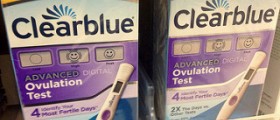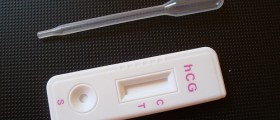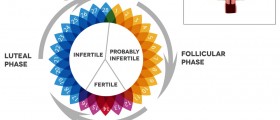
Pain and abdominal pressure are quite common during ovulation. Some figures suggest that ovulation pain is experienced by around 20 percent of all ovulatory women, in addition to other symptoms like changed cervical mucus. Unless you are aware that the abdominal discomfort you feel is caused by the release of an egg, it might be hard to realize what's going on. Often, the pain that is experienced is not bad enough to pay much attention to it, but still on the level that you will feel it every now and again. Because of the fact that one egg will be expelled from one ovary, the pain women feel is usually located on one side the "active" side of the reproductive system that particular menstrual cycle. Some women will feel a constant blunt pressure, while others will feel a sharp sting every once in a while.
Others yet do not feel pain unless they are having intercourse. Whichever of these applies to you, ovulation pain is usually completely normal and harmless and may in fact turn into a useful tool when you are hoping to get pregnant. And for those who are not trying to get pregnant, simply knowing the cause of their monthly abdominal pressure or pain may help. See ovulation pain as another signal that your menstrual cycles functioning the way they should, just like skin impurities before menstruation, or mood changes at that time.

















Your thoughts on this
Loading...